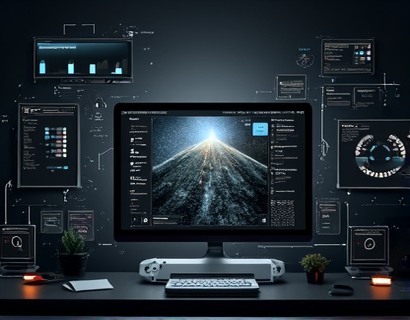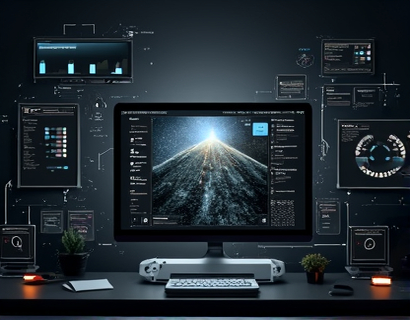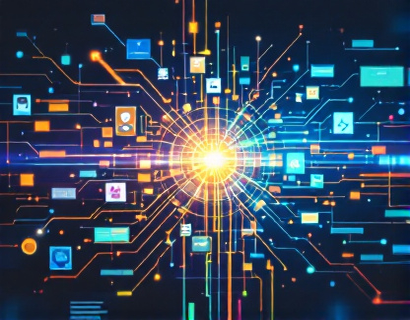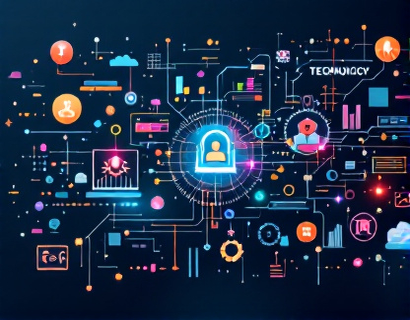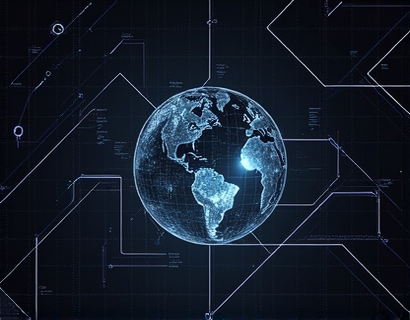AI-Powered Life Management: Transforming Decision-Making and Boosting Productivity
In the fast-paced world of today, managing personal and professional life efficiently is more crucial than ever. The integration of Artificial Intelligence (AI) into life management tools offers a revolutionary approach to simplifying decision-making and enhancing productivity. An AI-powered personal assistant serves as a sophisticated tool, providing intelligent insights and tailored guidance to streamline daily tasks and navigate life's complexities. This advanced technology not only simplifies routine activities but also empowers individuals to achieve their goals with greater ease and effectiveness.
The core functionality of an AI-driven personal assistant lies in its ability to analyze vast amounts of data, learn from patterns, and offer personalized recommendations. By leveraging machine learning algorithms, these assistants can adapt to individual preferences and behaviors over time, making them increasingly effective companions in managing both personal and professional responsibilities. The seamless integration of AI into daily life management transforms the way people approach decision-making, task prioritization, and overall productivity.
Intelligent Insights for Informed Decisions
One of the most significant benefits of an AI-powered life management tool is its capacity to provide intelligent insights. These insights are derived from comprehensive data analysis, enabling users to make informed decisions with confidence. For instance, when faced with a complex choice, such as selecting the best time to travel or deciding on a career path, the AI assistant can process multiple variables and offer data-driven suggestions. This capability is particularly valuable in personal finance, where the assistant can analyze spending patterns, suggest budget adjustments, and forecast financial outcomes based on different scenarios.
Moreover, intelligent insights extend to health and wellness. By monitoring daily activities, sleep patterns, and dietary habits, the AI can provide personalized recommendations to improve overall well-being. For example, it might suggest optimal times for exercise, recommend healthier meal options, or alert the user to potential health risks based on detected anomalies. These insights not only help in making better decisions but also contribute to a more balanced and healthier lifestyle.
Tailored Guidance for Enhanced Productivity
Productivity is often hindered by poor time management and lack of focus. An AI-driven personal assistant addresses these issues by offering tailored guidance to optimize daily routines. The assistant can create customized schedules that align with the user's goals and preferences, ensuring that time is used efficiently. By prioritizing tasks based on urgency and importance, the AI helps users stay focused on what truly matters, reducing the likelihood of procrastination and increasing overall output.
Additionally, the assistant can integrate with various productivity tools and applications, such as calendars, to-do lists, and project management software. This integration ensures a seamless workflow, allowing users to manage multiple tasks and projects simultaneously without the need for constant manual intervention. The AI can also detect patterns in the user's work habits and suggest improvements, such as breaking down large tasks into manageable steps or implementing the Pomodoro technique to maintain concentration.
Task Management and Automation
Effective task management is a cornerstone of productivity, and an AI-powered assistant excels in this area. The assistant can automatically generate to-do lists based on upcoming events, deadlines, and user preferences. It can also set reminders and notifications to ensure that nothing slips through the cracks. For repetitive tasks, such as data entry or email responses, the AI can automate these processes, freeing up valuable time for more critical activities.
Furthermore, the assistant can handle complex task dependencies, ensuring that tasks are completed in the correct order and that resources are allocated efficiently. This level of automation not only saves time but also reduces the cognitive load on the user, allowing them to focus on high-value tasks that require human creativity and critical thinking.
Navigating Life's Challenges with Confidence
Life is filled with unexpected challenges, and having a reliable companion to navigate these obstacles can make a significant difference. An AI-powered personal assistant serves as a trusted advisor, offering support and guidance when needed most. Whether it's managing a sudden change in work priorities, dealing with personal emergencies, or planning a major life event, the AI can provide structured approaches and actionable steps to tackle these challenges effectively.
For instance, in the event of a career transition, the assistant can analyze the job market, suggest relevant skill development courses, and help create a strategic job search plan. It can also monitor progress, offer encouragement, and adjust the plan as necessary based on feedback and changing circumstances. This continuous support system helps individuals stay confident and proactive in the face of uncertainty.
Personalized Learning and Development
Continuous learning and personal development are essential for long-term success. An AI-driven personal assistant can play a pivotal role in this journey by identifying knowledge gaps and recommending relevant learning resources. Whether it's online courses, books, or webinars, the AI can curate a personalized learning path that aligns with the user's career goals and interests.
Moreover, the assistant can track progress, provide feedback, and suggest areas for improvement. This ongoing support ensures that users remain engaged and motivated in their learning endeavors, leading to continuous skill enhancement and professional growth. By fostering a culture of lifelong learning, the AI assistant helps individuals stay competitive in an ever-evolving job market.
Enhancing Personal Relationships
The impact of an AI-powered personal assistant extends beyond professional productivity to personal relationships. By managing schedules and coordinating activities, the AI can help individuals balance work and personal life more effectively. For example, it can suggest optimal times for family gatherings, plan date nights, or coordinate group events, ensuring that precious time is spent meaningfully.
Additionally, the assistant can facilitate better communication by offering suggestions for expressing thoughts and feelings more effectively. It can also provide tips on conflict resolution and stress management, contributing to healthier and more harmonious relationships. By taking care of logistical aspects and offering emotional support, the AI helps users maintain strong connections with loved ones.
Mindfulness and Stress Reduction
In the quest for productivity, it's easy to overlook the importance of mental well-being. An AI-powered personal assistant can incorporate mindfulness practices into daily routines to promote stress reduction and mental clarity. The assistant can guide users through meditation sessions, breathing exercises, and relaxation techniques tailored to their needs and preferences.
By integrating mindfulness into the daily schedule, the AI helps users cultivate a more balanced mindset, reducing the negative impacts of stress and burnout. This focus on mental health is crucial for sustaining long-term productivity and overall life satisfaction. The assistant can also monitor stress levels based on activity data and suggest interventions when necessary, ensuring that users remain in a optimal state of mind.
Seamless Integration and User Experience
The effectiveness of an AI-powered personal assistant hinges on its seamless integration into daily life. A user-friendly interface and intuitive design ensure that the tool is accessible and easy to use, even for those who are not tech-savvy. The assistant can be accessed through various devices, including smartphones, smart home systems, and desktop computers, providing flexibility and convenience.
Moreover, the AI learns from user interactions, continuously refining its recommendations and support to better meet individual needs. This adaptive nature ensures that the assistant remains a relevant and valuable resource over time, evolving alongside the user's changing requirements and preferences.
Privacy and Security
As with any technology that handles personal data, privacy and security are paramount. A reputable AI-powered personal assistant must adhere to strict data protection standards, ensuring that user information is safeguarded against unauthorized access and breaches. Transparent privacy policies and robust encryption methods are essential to build and maintain user trust.
Users should have control over their data, including the ability to review, edit, and delete information as needed. By prioritizing privacy and security, the AI assistant not only complies with legal requirements but also fosters a safe and trustworthy environment for users to manage their lives.
Conclusion
The integration of AI into life management tools represents a significant leap forward in personal and professional productivity. An AI-powered personal assistant offers intelligent insights, tailored guidance, and seamless task management, empowering individuals to simplify decision-making and boost efficiency. By leveraging the power of machine learning and data analysis, these assistants provide a trusted companion for navigating life's challenges, helping users achieve their goals with greater ease and success.
As technology continues to advance, the potential for AI in life management will only grow, offering even more sophisticated solutions to enhance our daily lives. Embracing this innovation can lead to a more organized, productive, and fulfilling existence, where the focus is on achieving meaningful outcomes rather than getting bogged down by mundane tasks.



